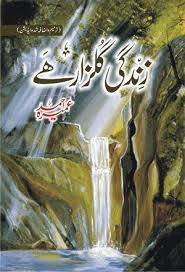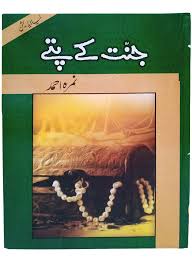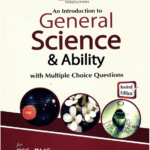Description
In his 2010 novel, “Aleph,” Paulo Coelho writes an extremely semi-autobiographical book. Through it, Coelho sends readers on a spiritual journey of self-discovery, reflection, and an investigation into the very idea of past lives and reincarnation. Here, “Aleph” is word that symbolizes the point proposed by Jorge Luis Borges in which “the cosmos touches parallax” and is represented by all time and space converging, thus showing an intense spiritual awakening for the main character.
Plot Summary:
The story narrates the path of the protagonist Paulo as a journey of spiritual crisis. Paulo, though being the writer, felt nothing more from the spiritual aspect of life and nor did he feel anything clear concerning his purpose in life. He could do nothing but look towards his spiritual master, J, who asked him to move around and have experiences in life so that he could regain passion for his walk in life.
Paulo embarks on a travel adventure journey through several countries until he decides to take the long train journey on the Trans-Siberian Railway cutting across Russia. In the course of the journey, he meets the talented and mystical young violinist, Hildegard (Hilal), who in a mystifying manner is attracted to Paulo. Hilal turns out to be the central figure in Paulo’s search for spiritual enlightenment.
The Concept of the Aleph:
In the novel, the Aleph symbolizes that point of convergence where the past, present, and future seem to be existing at one single moment. Through a series of profound spiritual experiences, Paulo and Hilal gain access to the Aleph, which allows them to revive moments from their past lives. Paulo finally understands that they have a deep karmic bond, having lived together during the Spanish Inquisition where he badly wronged her in a tragic fashion. The novel proceeds to detail how this chance encounter in the contemporary world offers Paulo a chance to atone for his transgressions and for both of them to seek healing spiritually.
Important Themes:
Reincarnation and Previous Lives:
One of the main themes in Aleph is reincarnation-the belief that our souls experience multiple lives over time, carrying unresolved issues from previous experiences. Paulo had to deal with his lifetime with Hilal in order to heal their karmic bond.
Forgiveness and Redemption:
A prevailing theme of the novel is the fulfillment of forgiveness-not only from other people but also from oneself. Paulo asks for forgiveness for the wounds he gave to Hilal during the previous life, but during their love relationship, both characters undergo a process of spiritual healing.
Spiritual Awakening and Maturation
Paulo’s journey depicts self-discovery and spiritual awakening; he learns that sometimes spiritual growth requires a message of painful truth, going through previous experiences, making amends with mistakes and hardships encountered in both this life and previous lives.
Living in the present moment:
Coelho emphasizes the living moment, observing everything in complete awareness. In the Aleph, through which they are going to experience merging of time, Paulo and Hilal learn how things can heal and make sense only when in strict presence, with unbarred life possibilities.
Transformation at Personal Level
The novel highlights the transforming powers of journeying—be it a location or a spiritual one. The Trans-Siberian Railway becomes a metaphor for Paulo’s inner journey of personal transformation, growth, and spiritual enlightenment .
The Search for Meaning:
Like many of Coelho’s works, Aleph is basically a search for deeper meaning in life. The readings and dealings of Paulo with Hilal bring him to some profound realizations regarding the interconnectedness of life and the need to walk one’s spiritual path courageously and authentically.
Paulo and Hilal:
The novel is basically centered upon the relationship between Paulo and Hilal. Although Hilal is much younger than Paulo, their connection lies beyond the aspect of time and even physical attraction. Their contact is driven by unfinished karmas from the past; through relationships in the present, they both have the opportunity to heal old wounds. For his part, Paulo feels a mix of guilt and responsibility toward Hilal, and vice versa, Hilal is mostly confused by passion and a deep sense of spiritual purpose.
The Role of Travel:
Travel is the heart of Paulo’s novel, as it often is in most of Coelho’s works. Paulo’s journey on the Trans-Siberian Railway comes to symbolize his inner journey toward enlightenment. The space of Siberia, the isolation of this railway journey, and the rendezvous with a host of persons help Paulo find his path to spiritual exploration. Traveling is not only a physical act of moving from one place to another but also discovering other dimensions, either about oneself or the world.
Writing Style and Tone:
Reflective, spiritual, and poetic are the words that can best define Coelho’s writing in Aleph. Charged with philosophical and mystical ideas, like his other works, this novel shares concepts of this great spiritual idea within simple yet profound language. It evokes a contemplative mood, reflecting one’s life, spiritual beliefs, and the possibility of changing for the better.
Key Messages:
Spiritual Journeys Are Personal:
Coelho implies that this is a personal, spiritual journey wherein each person must find their own truth just like Paulo in the novel.
Everything in Life Experience and Soul Is Connected: Aleph
The profound theme of Aleph, where everything in life, experience, and soul is connected, makes the whole timeline as past, present, and future connected; the action taken today produces affect in the future and so on.
Courage and Openness:
To achieve spiritual awakening, one must be capable and willing to face the painfully true reality and to absorb what life has to offer, no matter how paining it may be.
Conclusion:
This deep, spiritual novel of reincarnation, forgiveness, and self-discovery speaks to readers on their own journeys of discovery about life’s mysteries. Deeply personal and spiritual is a mystery novel where the author has chosen the Trans-Siberian Railway to narrate the saga of Paul’s journey and karmic companion Hilal. It explores every complication of human souls, the power of living in the present, and spiritual healing.










Reviews
There are no reviews yet.